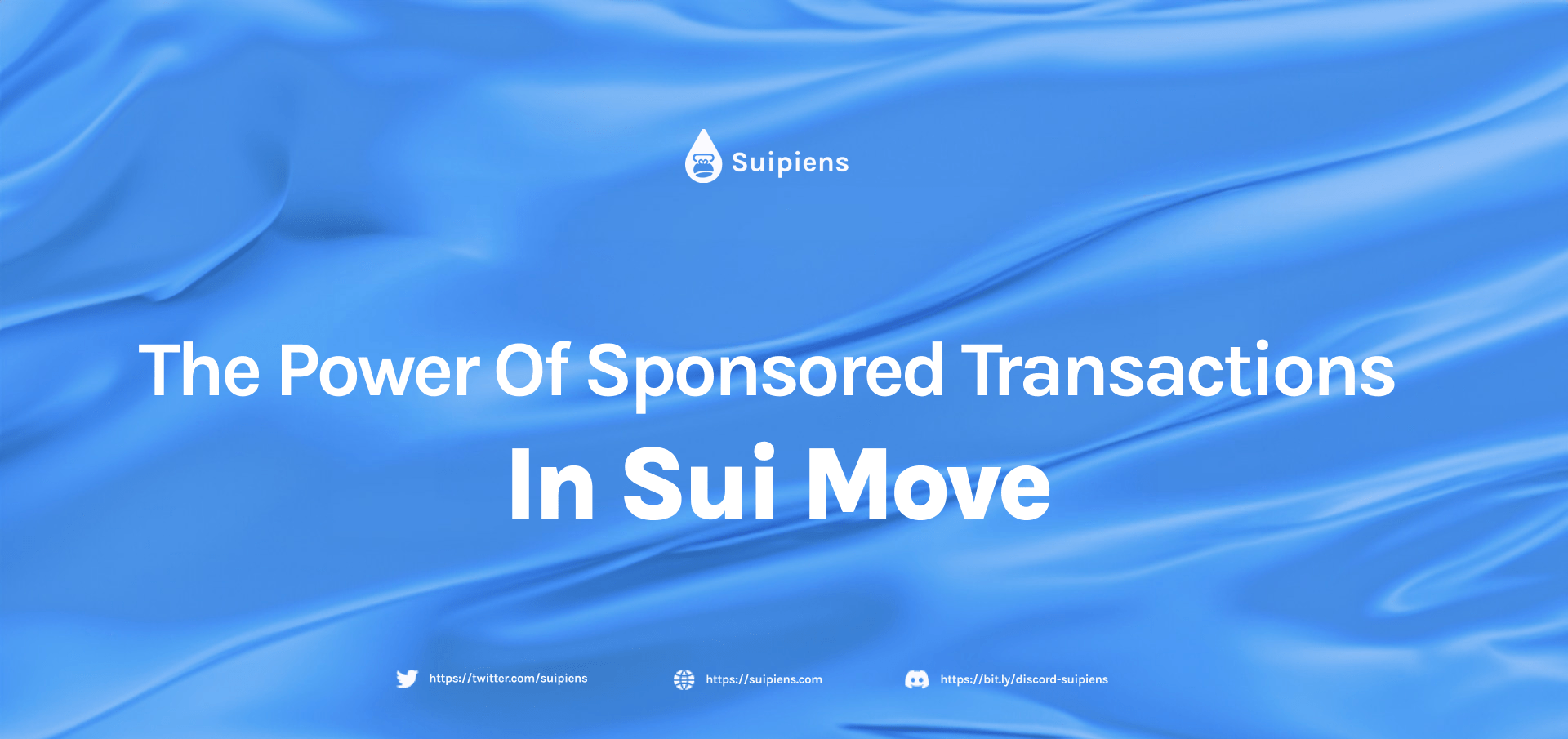The Power of Sponsored Transactions in Sui Move

Discover how Sui Move's sponsored transactions are reshaping Web3 by simplifying onboarding and eliminating complexities for newcomers.
In a stride towards enhancing user experience and advancing the Web3 ecosystem, Sui Move has introduced an ingenious solution that effectively overcomes a significant obstacle – the unfamiliarity with Web3 conventions. This transformative feature, known as "sponsored transactions," empowers developers to eliminate the cumbersome gas fee hurdle associated with app transactions, thus propelling the seamless integration of users new to Web3. Traditionally, Web3 networks necessitate users to cover gas fees for utilizing applications. However, Sui Move's sponsored transaction mechanism disrupts this pattern, facilitating a smoother journey for progressive developers who opt to embrace this groundbreaking approach.
The impediment of setting up a digital wallet and procuring tokens to meet gas fees has the potential to discourage potential users, particularly those accustomed to the multitude of seemingly cost-free applications on Web2 platforms. While conventional applications like Gmail and Facebook are funded through advertising revenue rather than direct user fees, the transition to Web3 demands innovative revenue models to expand its user base. Sponsored transactions emerge as a solution, enabling developers to absorb the gas fees accrued by users interacting with their applications. This paves the way for diverse revenue models, spanning from advertising and trialware to subscription-based services.
Sponsorship Approaches
The comprehensive documentation on Sui-sponsored transactions elucidates three distinct strategies for effective implementation:
User-Initiated Transactions
In this model, users generate a GasLessTransactionData object, often embedded within an app's functionality, which is then submitted to developers for approval. The developer subsequently initiates and authenticates a TransactionData object, encompassing details of the gas fees. This authenticated data is returned to the user for final confirmation and subsequently sent to the Sui network for processing.
While seemingly intricate, this process is seamlessly automated within an app's architecture, rendering the user's involvement virtually unnoticeable. However, developers are tasked with establishing a backend infrastructure to manage approvals and streamline gas fee disbursements.
Sponsor-Initiated Transactions
This approach empowers developers to directly cover users' gas fees, thereby unlocking a myriad of promotional models aimed at enhancing app adoption. Developers craft a TransactionData object that pre-approves a transaction, allocating gas fees to the developer. This object can be conveniently shared with users through email, instant messaging, or various internet-based communication channels.
This method holds immense potential for email-based promotions, allowing outreach to potential users unfamiliar with Web3. The TransactionData object might facilitate trial periods, followed by user payments for sustained access or even ushering users into an ad-supported environment.
GasData Object-Based Transactions
Developers initiate this method by formulating a GasData object, outlining the gas fee budget, and transmitting it to the user. Within the app's context, the user generates a TransactionData object, signs it, and transmits it back to the developer. The developer validates this object and forwards it to the network for processing.
Unlike the direct user-developer interactions inherent in sponsor-initiated transactions, the integration of GasData and TransactionData objects seamlessly blends into an app's workflow. This model draws an analogy to equipping users with a dedicated debit card solely earmarked for app-related gas fees.
Innovative Revenue Models
Drawing inspiration from the triumph of Web2 models, the substantial user bases translate to considerable earnings through advertising models, often sufficient to cover capital costs and generate profits. While many web applications leverage existing ad networks for revenue generation, effectively integrating display ads and diverse advertising formats, developers must diligently research networks that align with their unique requirements.
While advertising remains a suitable approach for browsing-centric apps, developers focusing on gaming and utility applications may explore alternatives like trialware, premium services, or add-ons. For instance, developers could provide a basic utility with the option to unlock advanced features for a nominal fee. In this scenario, developers bear the gas fees for all transactions linked to both the basic and premium versions, relying on revenue from the premium versions to offset the overall transaction costs. Add-ons prove particularly lucrative for gaming apps, allowing users to acquire new levels of in-game equipment.
Funding these innovative models could occur through software subscription services, traditional fiat currency, or harnessing the potential of Sui's capabilities. A plethora of software subscription services, spanning both traditional and Web3-centric platforms, are available for developers to explore as they seek to fortify their applications. While a fully Sui-based model might involve subscription or add-on payments in $SUI tokens, developers must weigh the balance between tokenization and the essence of sponsored transactions.
Pioneering Mainstream Adoption
At its core, Sui Move strives to facilitate the transition of the next billion individuals into the realm of Web3. This ambitious endeavor finds its technical foundation in Sui's high-performance, scalable network, complemented by its economical and foreseeable gas fees. Complementing this ecosystem, Sui Move equips developers with the tools necessary to usher in a new generation of applications.
Sponsored transactions, interwoven with Sui Move's user-centric attributes, present a clear path to onboard novices without Web3 experience. By abstracting the intricate technical elements associated with tokens and wallets, these transactions effectively dismantle a significant roadblock, propelling mainstream growth ever closer. As Web3 continues to evolve, sponsored transactions stand out as a remarkable and progressive step towards achieving widespread adoption.
Be sure to check out Suipiens' website and social media channels to stay up-to-date on all things about Sui Blockchain!

